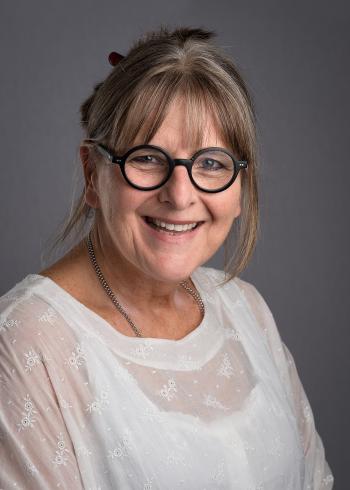

Annual report 2016-17
Chair's Report

The NFSA has the great privilege of being entrusted by Australians to collect, preserve and share our national memory in audiovisual forms including film, TV, broadcast media and recorded music. This wonderful spectrum of cultural treasure reminds us of who we are and guides
us to our future.
Our dedicated NFSA staff are rising to the challenges of the custodianship of our constantly evolving collection – about 2.8 million items strong – and ensuring that we are
a living archive, relevant for everyone.
We often describe the NFSA’s collection as placing us at the sweet-spot of the digital cultural economy. Digitisation is a constant focus for us as, still only a small proportion of our collection is in digital form, accessible in the way it needs to be in the 21st century and a driver of innovative use and re-imagination. While the need is increasingly urgent across the collection, it is particularly so for magnetic tape which, if not digitised by 2025, will be lost forever. We continue working on our own digitisation strategies but also on a business plan for large-scale digitisation with the national collecting institutions.
Collaboration is an important ingredient in meeting our strategic priorities and we have entered into a number of important memoranda of understanding (MoUs) with cultural institutions. These include the Australian Institute of Aboriginal and Torres Strait Islander Studies (AIATSIS), the National Museum of Australia, the National Portrait Gallery and Ngā Taonga Sound & Vision (New Zealand’s Archive of Film, Television and Sound). These MoUs variously cement relationships and shared activities with our colleague organisations in the knowledge that working together, we can achieve more.
A vital part of our work with Indigenous communities and partners has been our successful Indigenous Remote Archival Fellowship, conducted in partnership with AIATSIS and the Indigenous Remote Communications Association. Now in its second year, this fellowship has provided training and development opportunities to Indigenous archive professionals in audiovisual archiving practices. In addition, the Board has established an Indigenous Connections Committee to specifically address and support our Indigenous initiatives. We particularly thank Terri Janke, Jason Eades and Amanda Hayman for their contribution to this important work.
I would like to acknowledge the extraordinary contribution by NFSA ambassador, Margaret Pomeranz, who continues to tirelessly promote our work. Our NFSA Restores program, bringing Australian classic and cult films to a new life in superb digital restorations and screened at some of our leading film festivals nationwide, has been a resounding success. Margaret has been a strong enthusiast for NFSA Restores. We thank her and all our friends in the industry for their support and enthusiasm in celebrating these wonderful contributors to our film heritage. I would also like to welcome our TV ambassador, Glen Kinging, and our Lost Films ambassador, Tony Buckley. The NFSA is delighted to have such eminent and passionate leaders closely involved in our work.
This year, we welcomed the appointments of Fiona Scott, Kim Ledger and Caroline Elliot to our Board. I would like to acknowledge all of my colleagues on the Board who are each so generous with their time and expertise, and to thank them for their unfailing support. We appreciate the invaluable support of the Australian Government through the Minister for the Arts, and our colleagues at the Department of Communications and the Arts. I would like to especially mention Sally Basser who is retiring from the Department, who has been a tower of support for us and our sector over many years.
Finally, I would like to express my sincere appreciation for the work and commitment of our NFSA staff at every level and in all our offices. After five years as Chief Executive Officer (CEO), we farewelled Michael Loebenstein in January 2017. Michael led the NFSA during a time when we made a giant leap forward towards our goal of becoming a leader in the digital environment. Acting CEO, Meg Labrum, has taken on the role with energy and efficiency and I thank her for her dedication over the past months. Thanks to Meg and our leadership team, we did not miss a beat while we recruited a new CEO.
We are delighted to have announced the appointment of Jan Müller to lead the NFSA as CEO. Jan is recognised internationally for his pre-eminence in digital audiovisual culture. He has run a very successful and much-visited film and sound institution in The Netherlands and has chaired Europeana, a digital collection of 50 million items of cultural significance from museums, galleries, archives and collections in Europe. Jan’s appointment heralds an exciting new stage for the NFSA and not only we, but Australia’s entire cultural community, look forward to welcoming him in October 2017. The NFSA’s future is bright as we take our place as one of the most significant national cultural institutions in Australia, and enhance the relevance and potential of our collection. We look forward with confidence to our national audiovisual collection becoming increasingly available to audiences worldwide for enjoyment, learning, insight and creativity.

Gabrielle Trainor AO
Chair , NFSA Board
The National Film and Sound Archive of Australia acknowledges Australia’s Aboriginal and Torres Strait Islander peoples as the Traditional Custodians of the land on which we work and live and gives respect to their Elders both past and present.